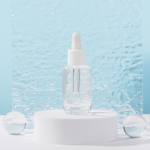Skincare discussions often focus heavily on the face, overshadowing the importance of body skincare. While facial care receives considerable attention due to its visibility and susceptibility to environmental damage, the skin covering the rest of the body deserves equal care and attention. Recognizing the unique needs of body skincare is essential for maintaining overall skin health and achieving a balanced, holistic routine.
Body skincare addresses the unique challenges of caring for the largest organ of the human body, the skin, which plays a vital role in protecting against environmental aggressors, regulating temperature, and preventing water loss. Understanding the differences between facial and body skin enables better decisions about how to care for each effectively.
Skin Differences: Comparing Face and Body
The skin serves as a barrier, protecting the body from external stressors such as UV rays, pollution, and irritants. However, the face is more exposed and subject to frequent care, while body skin is often neglected despite accounting for approximately 91% of total skin surface area. This disparity calls for a shift toward a more comprehensive approach to skincare.
Key Differences in Skin Composition
- Epidermis Thickness: Body skin generally has a thicker epidermis than facial skin, except in specific areas like the eyelids, which are particularly delicate. The thickest skin is found on the palms and soles, requiring targeted care.
- Sebum Levels: Facial skin tends to have higher sebum production, contributing to its natural moisture barrier. In contrast, body areas such as the legs often experience dryness due to lower sebum levels.
- Microbiome Diversity: The skin’s microbiome varies significantly across different regions, influenced by factors such as pH and moisture levels. Tailored care ensures optimal skin health for each area.
- Hydration Levels: Facial skin retains moisture more effectively than body skin, which is prone to dryness and requires additional hydration efforts.
These differences highlight the need for specialized products and routines for body skincare to maintain balance and health across all skin regions.
The Importance of Body Skincare
Despite its importance, body skincare is often overshadowed by facial care due to misconceptions and a lack of awareness. Common myths about body skin care include:
Myth #1: Body Lotion is Only for Dry Skin
- Reality: In truth, every skin type, including those with oily or combination skin, greatly benefits from regular and consistent moisturization. This is because even those with higher oil production can experience bouts of dryness or dehydration in particular areas of their skin, which can lead to various skin issues if left unaddressed.
Myth #2: Body Wash Alone Keeps Skin Healthy
- Reality: It is a common misconception that body washes provide all the necessary care for the skin. In fact, many commercially available body washes can strip away the skin’s natural oils during cleansing. As a result, it becomes crucial to follow up with an effective moisturization routine to replenish the moisture and maintain optimal skin hydration, preventing any discomfort or imbalance in your skin’s texture.
Myth #3: Exfoliating the Body Isn’t Necessary
- Reality: On the contrary, gentle body exfoliation is an important practice that promotes the natural process of cell turnover, helps prevent clogged pores, and improves overall skin texture. Regular exfoliation can lead to a noticeable enhancement in the skin’s radiance and appearance, making it appear fresher and more vibrant.
Myth #4: Any Lotion or Soap Suffices for Skincare
- Reality: Similar to facial skincare, body skincare demands products that are specifically formulated to address individual concerns and needs. Whether your issues revolve around dryness, sensitivity, or other skin conditions, the right selection of lotions and soaps is essential for achieving the best results and ensuring the health and vitality of your skin.
Proper body care not only improves skin health but also enhances its appearance and resilience, contributing to a comprehensive skincare routine.
Addressing Common Body Skin Concerns
The skin on the body faces a range of challenges that can impact its texture, hydration, and overall appearance. Common concerns include:
1. Dryness
Inadequate hydration can significantly disrupt the natural processes of the skin, leading to issues such as roughness and a lack of vibrancy, which can contribute to an overall dull appearance. To combat these effects, it is essential to incorporate hydrating products that contain powerful ingredients like hyaluronic acid and ceramides. These components work synergistically to help restore moisture levels in the skin and improve elasticity, allowing it to look healthier and more youthful. Consistently using these hydration-boosting products can make a noticeable difference in the skin’s overall texture and appearance.
2. Dullness
The presence of dead skin cells and the effects of environmental damage can cumulatively leave the skin looking lacklustre and lifeless. This can be exacerbated by factors such as pollution, sun exposure, and natural ageing. To revive a lacklustre complexion, it is crucial to establish a regular exfoliation routine alongside the use of brightening ingredients like vitamin C. Exfoliation helps to slough off dead skin, promoting cell turnover. In contrast, vitamin C is known for its ability to illuminate the skin and enhance radiance. Together, these practices can create a brighter, more vibrant complexion that reflects a healthy glow.
3. Texture Issues
Many people experience roughness, bumps, and uneven texture on their skin, often caused by various environmental stressors, including harsh weather conditions and exposure to pollutants. These texture issues can detract from the skin’s overall smoothness and appeal. To effectively address these concerns, it is important to incorporate both exfoliating and moisturizing products into your skincare regimen. Exfoliating not only removes dead skin cells but also unclogs pores, leading to a refinement in texture. Coupled with a good moisturizer, this approach can leave the skin feeling smooth, supple, and rejuvenated, significantly enhancing its overall look and feel.
4. Aging
As we age, common signs such as wrinkles and sagging skin can begin to appear, not only on the face but also on other areas of the body. These changes can be attributed to a decrease in collagen production and natural skin renewal processes over time. To effectively combat these visible signs of ageing, it is beneficial to use products that are specifically designed to support collagen production and enhance the skin’s natural renewal processes.
Ingredients such as retinol or peptides belong to a class of formulations that can stimulate rejuvenation and help diminish the appearance of fine lines and elasticity loss. Integrating these anti-ageing solutions into your skincare routine can lead to significant improvements in the skin’s firmness and overall texture.
Creating a Comprehensive Body Skincare Routine
A structured body care routine mirrors facial skincare in its approach: cleanse, treat, and moisturize. Incorporating sun protection ensures comprehensive care.
1. Cleansing
It is essential to use gentle and hydrating body washes that effectively cleanse the skin by removing impurities and dirt, all while avoiding the removal of the skin’s natural oils. Choosing a product that is specifically formulated to be mild on the skin will help maintain its balance and prevent dryness, ensuring that your skin remains healthy and hydrated. Look for cleansers that include nourishing ingredients to enhance hydration during the cleansing process, leaving your skin feeling fresh and revitalized.
2. Exfoliating
Incorporate either physical or chemical exfoliants into your skincare routine on a weekly basis. This practice is vital for effectively removing dead skin cells that accumulate on the surface, which can lead to dullness and rough texture. By promoting smoothness and encouraging cell turnover, exfoliation not only enhances the skin’s appearance but also allows for better absorption of other skincare products. Whether you prefer a granular scrub or a gentle peeling solution, regular exfoliation can significantly improve the overall texture and clarity of your skin.
3. Moisturizing
To ensure that your skin remains hydrated and supple, it is crucial to lock in moisture using body creams or lotions that are tailored to meet the specific needs of your skin type. Look for products that contain powerful and effective ingredients like shea butter, glycerin, and ceramides, as these components are known for their ability to nourish and restore the skin’s moisture barrier deeply. Applying a suitable moisturizer daily will help to keep your skin feeling soft and smooth, protecting it from environmental stressors that can cause dryness and irritation.
4. Sun Protection
Don’t forget the importance of sun protection in your skincare routine. Applying broad-spectrum sunscreen to all exposed areas of your skin, particularly on the arms and legs, is crucial for preventing harmful UV damage. Regular use of sunscreen will help shield your skin from the detrimental effects of the sun, thereby reducing the risk of premature ageing and skin-related issues. Making sunscreen a daily essential, even on cloudy days or during indoor activities, is key to maintaining the youthful appearance of your skin for years to come.
Customizing Body Skincare
Just as we carefully select facial skincare, we must also consider various factors for body products. Our body’s skin is unique and needs proper care to stay healthy. Here are key points to remember when choosing body skincare items.
Seasonal Adjustments
Seasonal changes greatly affect our skin’s condition and appearance. Variations in temperature, humidity, and sun exposure can harm skin health and increase vulnerability to stress and damage. For example, low humidity on aeroplanes or at high altitudes may worsen dryness and irritation.
- Temperature: The temperature of our environment plays a crucial role in how our skin behaves. In colder temperatures, for example, the skin’s ability to recover and retain moisture is significantly hampered. Cold, dry weather can lead to a noticeable decrease in the skin’s water content, resulting in a dry and flaky appearance. Conversely, during the summer months, the combination of high humidity and low barometric pressure can be beneficial for the skin, as it helps maintain hydration levels by allowing water to diffuse from the deeper layers of the skin to the surface.
- UV Exposure: Another critical factor to consider is UV exposure. Ultraviolet radiation can cause significant damage to skin cells, leading to oxidative stress that can have long-term consequences. Over time, this kind of damage can manifest in various ways, such as the development of wrinkles, fine lines, uneven skin tone, and sun spots. It is vital to protect our skin from UV rays, especially during the peak sun exposure months, to prevent these adverse effects.
Embrace a Holistic Approach to Body Skincare
Body skincare plays a crucial role in maintaining overall skin health and appearance. Addressing the distinct needs of body skin through tailored products and routines ensures a balanced approach to skincare. By recognizing the importance of hydration, exfoliation, and targeted care, the skin remains healthy, resilient, and radiant.
Committing to a comprehensive skincare regimen for both face and body not only enhances physical well-being but also fosters confidence and self-care, reflecting the importance of caring for every inch of the skin.



